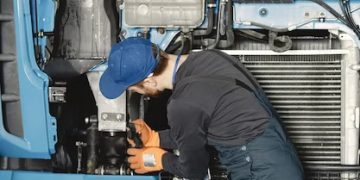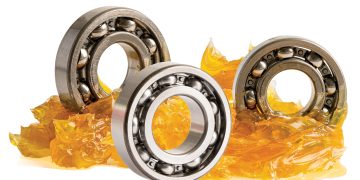Since its genesis, the automotive industry, especially the repair and maintenance section, is a male-dominated empire. This may be so because of the laborious nature of repairing work as the automotive industry is identified as a field, which demands muscle power, engineering knowledge, and speed in mind. Women’s representation has long been low in the automotive repair sector in a patriarchal society like India. With the advent of technology and progress in social norms, the industry has now changed. Emerging technology has been one of the key driving forces for women to participate in this field.
The acceptance and encouragement of women in the industry have increased in recent years. The one that is playing a field-leveler is academia. Many industry honchos like Mahindra and Tata Motors have teamed up with colleges and training institutes to encourage and empower women’s auto repair and maintenance participation.
Despite such remarkable initiatives, an unfavorable environment still makes it difficult for women to excel in this industry. It is no secret that the automotive industry is lagging behind other sectors as it seeks to redress its gender imbalance.
“Our aim is to provide industry-relevant training and make the students industry-ready. It’s the responsibility of the automotive companies and dealers to take it forward from us by providing hands-on experience in the industry to the students. Unfortunately, most of the dealers are hesitant to appoint female candidates – even with proven credentials – in the core productive roles in their service centers,” says Mr Jinesh Vinayachandran, Academic Advisor, Little Flower Engineering Institute, Kochi.
Mr Jinesh is the coordinator of the LEAP (Learn, Earn and Acquire Progress) project, a 12-months CSR initiative by Tata motors under the scheme “Kaushalya”. More than 100 private ITIs, including Little Flower Engineering Institute, have signed a partnership with Tata Motors for the LEAP program.
The project was commenced in 2014 with a prime aim to help female students to hone their skills as automotive service technicians. But, for the last two years, not even a single female student showed interest in the automotive course, thanks to the insouciant attitude of the business fraternity towards recruitment of women workforce.
According to Jinesh, while the manufacturing sector is slowly but firmly increasing women’s participation in their workforce, the lack of opportunity for women is severe in the service sector.
Mr Ninto, HoD – Automobile Department, Little Flower Engineering Institute, expressed a similar sentiment.
“Because of this pervasive stereotype in the industry, service centers are reluctant to recruit our female students to key roles and employ them to non-technical jobs. Once these students lose touch with the technical field, within three months, they will lose 80% of the technical skills acquired during the course,” elucidates Mr Ninto.
Some of the industry players are still skeptical about women performing manual jobs including wheel changing, balancing, and operating machinery to service a vehicle, etc. While some of them even believe that their customers may find women technicians physically not strong enough to be working on the shop floor. Also, many laws do not allow women working in the Heavy industry to work beyond 6 in the evening. This regulation gives recruiters an opportunity to deny employment to women.
When it comes to service center infrastructure, the dealers have already built a male-oriented structure, including service floor and health & sanitary. And just for one or two lady staff, the dealers feel it will be uneconomical to rebuild or restructure the entire service center.
“Management and leadership team needs to work on fixing it to ensure women inclusion in the workforce,” Jinesh asserts.
Meanwhile, Mr Benny*, Operation Manager at an independent multi-brand Bodyshop, pointed the finger at a different cause.
“We are always open to accommodating women technicians in our service centers. But till today we didn’t come across any female candidate who is interested in a technical job,” explains Benny. He further says that dealers like Popular Motors and Sai Motors have many female technicians working in their outlets.
Resonating with that, Mr Sanoj*, Service Head at a prominent Collision Repair Center, says although service centers and body shops are ready to employ female staff, household obligations and pressure from the wider society prevent women from entering this industry.
“Being an auto mechanic is a physically taxing job, involving frequent heavy lifting and often requiring brute strength. It was dirty work, too. Mechanics could always be spotted by the grease and dirt under their fingernails,” tells Sanoj citing these may be reasons that hinder more females’ involvement in this field.
“There are more reasons why female auto mechanics are rare, including a lack of role models in the past. As a result, young girls are hesitant to look up to women in the automotive industry and realize they can also do it,” continues Sanoj.
Auto repairing and maintenance is now more a brain game as the industry has gone from nuts and bolts to Ohms and volts. And the physical barriers women may have once felt when entering the field have largely disappeared. Across the industry, companies have various initiatives to address imbalances and induct female talent in all areas of business. It is also vital that Industry and companies must look at increasing workplace flexibility, ensuring equal opportunities for all their workforce, and providing support and an open communication channel to raise any concerns that may be affecting a female staff. Because the clear indicator of any progressive industry is creating a gender-inclusive workplace.
*Names have been changed to maintain confidentiality

























































